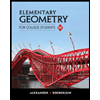1. What is the inverse of the statement "If two angles are supplementary, then the sum of the two angels is 1800."? A. Yes, if two angles are not supplementary then they do not add to 180°. B. No, if angles don't add to 180°, then they can still be supplementary. C. No, supplementary angles add to 90°. D. Yes, supplementary angles add to less than 180°.
1. What is the inverse of the statement "If two angles are supplementary, then the sum of the two angels is 1800."? A. Yes, if two angles are not supplementary then they do not add to 180°. B. No, if angles don't add to 180°, then they can still be supplementary. C. No, supplementary angles add to 90°. D. Yes, supplementary angles add to less than 180°.
Elementary Geometry For College Students, 7e
7th Edition
ISBN:9781337614085
Author:Alexander, Daniel C.; Koeberlein, Geralyn M.
Publisher:Alexander, Daniel C.; Koeberlein, Geralyn M.
ChapterP: Preliminary Concepts
SectionP.CT: Test
Problem 1CT
Related questions
Question
I would really appreciate it if you help me thank u

Transcribed Image Text:1. What is the inverse of the statement "If two angles are supplementary,
then the sum of the two angels is 1800."?
A. Yes, if two angles are not supplementary then they do not add to 180°.
B. No, if angles don't add to 180°, then they can still be supplementary.
C. No, supplementary angles add to 90°.
D. Yes, supplementary angles add to less than 180°.
2. What is the converse of the statement: "If you will get high scores, then
you will pass the subject."?
A. If you will not get high scores, then you will not pass the subject.
B. If you will pass the subject, then you will get high scores.
C.If you will not pass the subject, then you will not get high scores.
D. If you will pass the subject, then you will not get high scores.
3. Which of the following is the inverse of the statement:" If you love
numbers, then you are good in Math. "?
A. If you do not love numbers, then you are not good in Math.
B. If you are not good in Math, then you do not love numbers.
C. If you are good in Math, then you love numbers.
D. If you are good in Math, you love numbers.
4. What is the contrapositive of the statement: "If it is raining, then the
grass is wet."?
A. If the grass is wet, then it is raining.
B. If it is not raining, then the grass is not wet.
C. If it is not wet, then it is raining.
D. If the grass is not wet, then it is not raining.
5. Which of the following best describes deductive reasoning?
A. Using logic to draw conclusions based on accepted statements.
B. Accepting the meaning of a term without definition.
C. Defining mathematical terms in relation to physical objects.
D. Inferring a general truth by examining a number of specific examples.
Expert Solution
This question has been solved!
Explore an expertly crafted, step-by-step solution for a thorough understanding of key concepts.
This is a popular solution!
Trending now
This is a popular solution!
Step by step
Solved in 3 steps with 1 images

Recommended textbooks for you

Elementary Geometry For College Students, 7e
Geometry
ISBN:
9781337614085
Author:
Alexander, Daniel C.; Koeberlein, Geralyn M.
Publisher:
Cengage,

Elementary Geometry for College Students
Geometry
ISBN:
9781285195698
Author:
Daniel C. Alexander, Geralyn M. Koeberlein
Publisher:
Cengage Learning

Elementary Geometry For College Students, 7e
Geometry
ISBN:
9781337614085
Author:
Alexander, Daniel C.; Koeberlein, Geralyn M.
Publisher:
Cengage,

Elementary Geometry for College Students
Geometry
ISBN:
9781285195698
Author:
Daniel C. Alexander, Geralyn M. Koeberlein
Publisher:
Cengage Learning